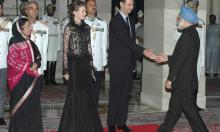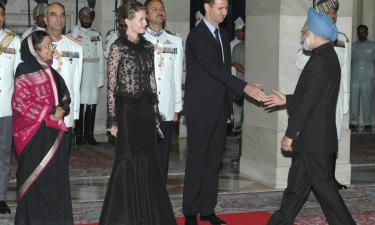Political crisis in Bosnia could spiral out of control
Miroslav Lajcak, Bosnia's international administrator, claimed that a deep political crisis between two ministates in the former Yugoslav republic could spiral out of control.

Miroslav Lajcak, a Slovak diplomat overseeing Bosnia, offered a bleak picture of the ethnically divided country during an appearance before a European Parliament committee.
Bosnia's two semi-autonomous ministates - one for Serbs, the other shared by Croats and Bosnian Muslims - hold opposite views on the central government and how powerful it should be.
Bosnia's Serbs, who want to hold onto powers they were given to run their own affairs after the 1992-95 war, have opposed efforts to strengthen the federal government. Bosnian Muslims support the efforts.
"Each of the political leaderships ... clearly wants to impose its own vision of the country. The legacy of war and the logic of nationally based and zero-sum politics make any significant compromise profoundly difficult if not entirely impossible," Lajcak told the committee of European Union lawmakers.
Lajcak said that while the security situation in Bosnia remained stable, there has been little progress in trying to unite the country's ethnically divided police forces, a reform demanded by the European Union as a condition for closer ties.
In the late 1990s, Bosnia was one of the Balkan nations judged to be furthest along in efforts to join the EU. But it slid to rock bottom in 2007 largely because of a Bosnian Serb boycott of the state's central government that has blocked EU-demanded reforms.
Bosnia remains the only former Yugoslav state without a pre-membership agreement with the EU.
"For the time being there are no real prospects of restarting the process," Lajcak said. "If we do not act quickly and decisively, problems will spiral out of control. This is a lesson from the early '90s and one which is relevant for the present and for the future."
Bosnia has been overseen by an international administrator since the Dayton Peace Accords ended the war and divided the country into two ministates. The war, during which the Bosnian Serbs fought for unity with Serbia, left at least 100,000 people dead.
Lajcak, who took over in June, is seeking to create a stable central government for all of Bosnia's people.
Subscribe to Pravda.Ru Telegram channel, Facebook, RSS!



